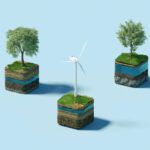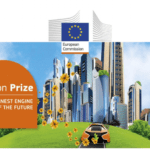The main market driver in the textile sector is the fast-growing demand for products and the need to respond to it without a negative environmental impact. The proportion of bio-based textile fibres has been falling steadily for decades, mainly because of the environmental limits of cotton production and the progress made (e.g. in terms of reduced costs) in the field of synthetic fibres. However, over a third of textile fibres are still bio-based.
Specific Challenge
The challenge is to develop processing technologies and create an innovative and sustainable bio-based textile economy based on circular economy principles, thus making efficient use of resources, radically improving recycling, phasing out plastic microfibre release and accelerating the development and adoption of sustainable circular business models.
Scope
Activities should address:
- the development of innovative, techno-economically feasible materials and processes for the production of resource-efficient, sustainable and functionally performing bio-based textiles;
- the technical, environmental and economic aspects of bio-based textile recycling, focusing on quality, i.e. targeting up-cycling, or at least, recycling into the same or similar quality applications; and;
- the use of new bio-based materials and the design of textiles that are either biodegradable or do not shed microfibers and have the properties needed for performance applications.
Work on the sustainability and safety of end products should embrace the use of resources as a whole and incorporate the established standards for products with a small environmental footprint, from life-cycle assessment to eco-labelling. In addition, activities should investigate the elements needed for the development of innovative circular business models for bio-based textiles.
The Commission considers that proposals requesting an EU contribution of around EUR 7 million would allow this challenge to be addressed appropriately. This does not preclude the submission and selection of proposals requesting other amounts.
Expected Impact
- Foster innovations that enable bio-based textile value chains to become more resource efficient, circular, and reduce their carbon, greenhouse gas and water footprint, in line with climate, energy and sustainable development goals.
- Prevent and significantly reduce plastic microfibre pollution;
- Improve the efficiency and technological performance of bio-based textile recycling
- Strengthen the market position and increase the market share of bio-based textiles
- Deliver results in a form that allows for efficient feedback into policymaking in research, innovation and technology, in particular in the EU circular economy
- Demonstrate solutions and develop strategies for the circular innovation of the whole innovative bio-based textile system, building on a shared vision and enhancing cooperation between all stakeholders.
- Raise awareness and create a better framework for systemic innovation and uptake of results through broad stakeholder engagement.
Deadline
22 January 2019 at 17:00 Brussels time







Leave a Reply